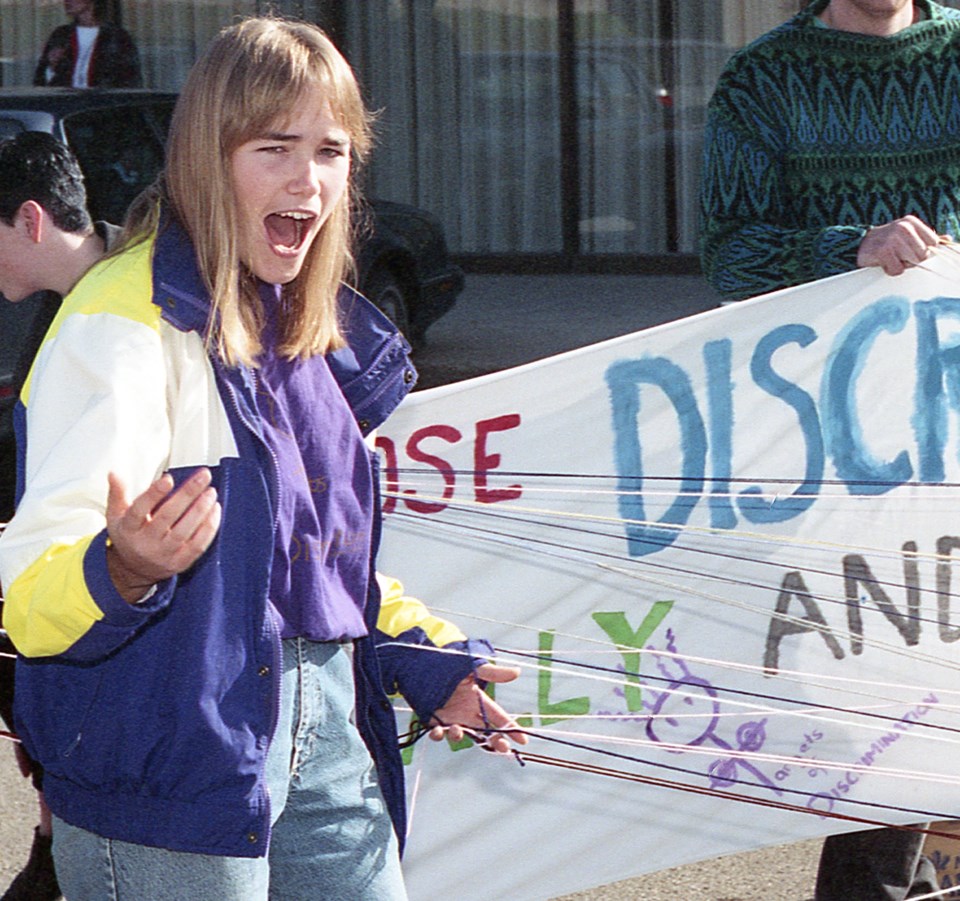Thirty years ago this week a university student was charged while she was walking down a Guelph street without a top on. Gwen Jacob’s legal fight and eventual win changed how the law was enforced in Ontario and, some say, also change attitudes toward the right of women to be topless in public.
In July of 1991 Gwen Jacob was a 19-year-old student at the University of Guelph when she was charged with indecency after removing her shirt while walking in the summer heat. For her that began a lifetime of advocacy for the Topfree movement, which seeks to allow women to be topless in the same places that men are.
GuelphToday was unable to reach Jacob for an interview for this story.
The case went to the Ontario Court of Appeal in 1996, which found that Jacob was not guilty of indecency, winning the right for her and other women in Ontario to appear topless in public.
Samantha Brennan is dean of U of G’s College of Arts and a professor in the philosophy department who writes about feminist ethics and feminist approaches to sports and fitness.
“I remember people saying at the time ‘what is going to happen now? Are women going to wander around town without tops on?’” said Brennan. “It was the end of the threat of legal action. It was liberating, even if it’s a thing you never want to do.”
Brennan said Jacob didn’t just win the right for a woman to walk down the street without a top, a legal right that men have had for much longer. She also won the right for a woman athlete to change out of a wet suit, for a woman to breastfeed in public or for a young girl to be allowed to swim without being told to put on a bikini top.
“Women are made to feel ashamed of their bodies and that they shouldn’t be seen. Changing the law has, I think, changed some of those attitudes. There no longer a fear that you are going to be arrested,” said Brennan.
Stéphane Deschênes is the owner of the Bare Oaks Family Naturist Park near Newmarket and the host of a podcast about naturism. He interviewed Jacob about her experiences.
“What Gwen was fighting for was not just about body acceptance, it was fairness in terms of equality,” said Deschênes.
At the time of the charge, said Deschênes, Jacob received a fine.
“She could have just paid it and not had a (criminal) record or anything,” said Deschênes. “But she decided not to give in.
The Ontario Court of Appeal decision did not rule that women had an equal right to appear topless in public, noted Deschênes, just that doing so was not considered indecent.
Deschênes said the fact Jacob has appeared at a number of Topfree rallies over the years, at least as recently as 2016, proves her commitment to the cause of equality.
“What that says about her is that it was always about the principle. It was never that she thought she looked good or wanted people to look at her,” he said. “The fact that she didn’t leverage this for money or a career also tells you a lot about her.”
